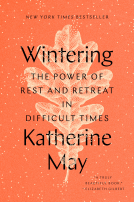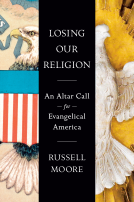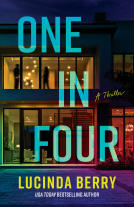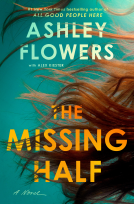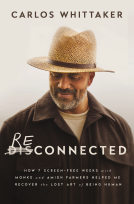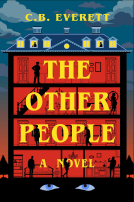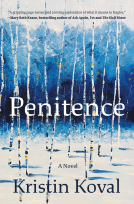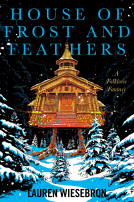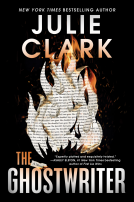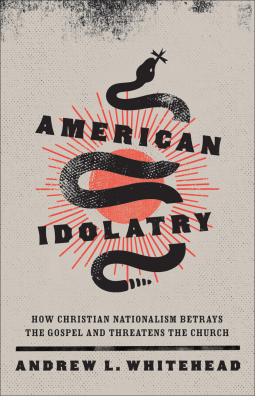
American Idolatry
How Christian Nationalism Betrays the Gospel and Threatens the Church
by Andrew L. Whitehead
This title was previously available on NetGalley and is now archived.
Send NetGalley books directly to your Kindle or Kindle app
1
To read on a Kindle or Kindle app, please add kindle@netgalley.com as an approved email address to receive files in your Amazon account. Click here for step-by-step instructions.
2
Also find your Kindle email address within your Amazon account, and enter it here.
Pub Date Aug 15 2023 | Archive Date Sep 15 2023
Baker Academic & Brazos Press | Brazos Press
Talking about this book? Use #AmericanIdolatry #NetGalley. More hashtag tips!
Description
Power. Fear. Violence. These three idols of Christian nationalism are corrupting American Christianity.
Andrew Whitehead is a leading scholar on Christian nationalism in America and speaks widely on its effects within Christian communities. In this book, he shares his journey and reveals how Christian nationalism threatens the spiritual lives of American Christians and the church.
Sharing stories from pastors, teachers, and other lay Christians, Whitehead explores
● the harm we cause our neighbors when we embrace the idols of power, fear, and violence
● key examples that demonstrate how these idols violate core Christian beliefs
● expressions of Christianity that confront Christian nationalism
● the work we can do to disentangle Christianity from Christian nationalism
● a faithful path forward, embodying the life and teachings of Jesus and the gospel
"Heartfelt, incisive, and worthy of thoughtful consideration."--Library Journal
"A fascinating investigation of politics and racism in American Christian evangelicalism."--Foreword Reviews
Advance Praise
“American Idolatry is the book I would hand to anyone who is just beginning their journey of understanding white Christian nationalism or who is suspicious that it is even a problem. Andrew Whitehead combines his incisive perspective as a sociologist with his personal journey as one whose early faith was shaped by this ideology. American Idolatry moves beyond an academic analysis and reveals the deep and harmful human impact of white Christian nationalism.”—Jemar Tisby, New York Times bestselling author of The Color of Compromise and How to Fight Racism; professor of history, Simmons College of Kentucky
“What is Christian nationalism and why does it matter? Andrew Whitehead cuts through the confusion with this powerful and timely book. Crisply written and utterly compelling, American Idolatry will serve as an essential primer for anyone seeking to understand our current moment so we can chart a path toward a more just and compassionate future.”—Kristin Kobes Du Mez, New York Times bestselling author of Jesus and John Wayne: How White Evangelicals Corrupted a Faith and Fractured a Nation
“This is a book whose time has come. With the precision of a scholar and the passion of a faithful Christian, Andrew Whitehead clarifies the difference between Christianity and Christian nationalism. He calls out Christian nationalism for what it is: ‘a cultural framework . . . draped in religious rhetoric . . . irrevocably linked’ to white racist and xenophobic attitudes. He also makes clear that it is not enough simply to declare that one is not a Christian nationalist; rather, one must embody what it means to be Christian—beginning with recognizing Christianity’s complicity in creating and sustaining racism and actively working for racial justice. By the end of this book, one discovers that it’s not only Christian nationalists who betray the gospel but also those Christians who remain quiet in the face of it. American Idolatry is required reading for anyone who claims to be Christian in this time of Christian nationalist fervor.”—Kelly Brown Douglas, former dean of Episcopal Divinity School, Bill and Judith Moyers Professor of Theology, Union Theological Seminary
“We need this book. Now. Whitehead uses his academic expertise and personal experience to explain how we can be both faithful Christians and faithful citizens without being seduced by Christian nationalism. With skill and grace, he explains the dangerous ideologies undergirding Christian nationalism, traces how it has infected the church, and provides practical guidance for those of us fighting it in our own communities. This is a book you should give to your friends, your family, and your pastor.”—Beth Allison Barr, James Vardaman Professor of History, Baylor University; author of The Making of Biblical Womanhood: How the Subjugation of Women Became Gospel Truth
“With a rare combination of sociological insight and pastoral concern, Andrew Whitehead has given us an invaluable field guide to recognizing the threat that Christian nationalism poses for the integrity of Christian theology and the health of American churches, particularly those that are predominantly white. This timely and practical book serves as a much-needed moral compass in these bewildering times.”—Robert P. Jones, president and founder of Public Religion Research Institute; author of White Too Long: The Legacy of White Supremacy in American Christianity
“In American Idolatry, Whitehead enters the belly of the beast, where he ventures forth not with a sword or with a dagger but with a light—shining beautifully and brightly in the form of his own journey, his own imagination, his own witness. It is said that salvation is not only about life in the future but also about life right now. Whitehead reveals that life, that love, and the truths that remake us. At a moment in time when people are not taking Christianity seriously, or have been hurt by the faith, Whitehead invites us into repair. American Idolatry is a reckoning with a faith that desires power more than love. But it is also a redemption. A resurrection. And quite possibly for those who need it—a revolution. Stories indeed can save us and heal us. Whitehead has an important story to tell.”—Danté Stewart, award-winning author of Shoutin’ in the Fire: An American Epistle
“Sociologist Andrew Whitehead’s scholarship has greatly deepened America’s understanding of white Christian nationalism. In American Idolatry he powerfully engages the subject on intimate terrain, that of a Christian believer deeply grieved by the ways white Christian nationalism has weaponized the faith he loves. With both passion and acuity, he cites the dangers it portends for both American society and the Christian faith: its grotesque distortion of the gospel message of peace and love for neighbors, its poorly veiled inherent racism, its antidemocratic obsession with authoritarian power, its fearmongering and ‘us’ versus ‘them’ view of the world, and its willingness to use violence to fulfill what it believes to be its ultimate duty of dominating every aspect of American society. But just as importantly, he also looks at the ways that it is being confronted on the terrain of faith. A lively and lucid read, American Idolatry is a significant contribution to our understanding of white Christian nationalism and the social and psychological forces that underlie it.”—Obery M. Hendricks Jr., author of Christians against Christianity: How Right-Wing Evangelicals Are Destroying Our Nation and Our Faith
Available Editions
| EDITION | Other Format |
| ISBN | 9781587435768 |
| PRICE | $24.99 (USD) |
| PAGES | 240 |
Available on NetGalley
Featured Reviews
This book will speak directly to the fears and idols people who follow White Christian Nationalism (WCN) have and why those idols will only demand more violence and are not what the Bible teaches about what it means to be a follower of Jesus in the public square. It will prick those who don't subscribe to that ideology but can't quite figure out why it doesn't jive with what we know to be true of our faith. I am hopeful it will nudge some individuals on the proverbial fence about this issue into having eyes wide open and spot the more subtle messages of WCN and speak against it in their immediate circles. This is a searing portrait, and Mr. Whitehead pulls no punches in calling out this ideology's evil.
 Reviewer 1154977
Reviewer 1154977
I have been eagerly waiting for this book's release. This weekend, I sat outside to read it and I couldn't put it down. Andrew Whitehead is a very talented writer, and I found the book easy to read. A non-theologian and non-academic could pick up this book and understand its main thesis. I found the material convicting, challenging, and hopeful.
Andrew doesn't shy away from confronting the reader with the harsh realities of white Christian nationalism and the harm it has done and is currently doing to the marginalized and oppressed in America and around the world. Many times I've heard in evangelical circles "America is a Christian nation" and we need to "take the nation back for God." Andrew emphasizes how these comments are antithetical to the Gospel and commands of Jesus.
Although I wish every believer would pick up this book to read it, I think those most likely to read this book are believers and non-believers who are already disillusioned with the current state of American Christianity or those who are already aware of and concerned about Christian nationalism.
If you aren't in this category, I still want to challenge you to consider reading this book for several reasons.
1) It clearly emphasizes and communicates the many critiques non-Christians have of white American Christianity. Andrew writes, "The gospel empowers us to seek the flourishing of all." The hard fact of the matter is that Christian nationalism fails to seek the flourishing of all and "many of our non-Christian neighbors know us by anything but love and service." As a believer, I want to be known for my love of neighbor, seeking justice for the oppressed.
2) This book helps the reader understand why protecting your neighbor's religious freedom is just as important as protecting your own. This means not holding white American Christian religious freedom as "greater" or "above" our Muslim, Hindu, any other faith, or non-religious neighbor.
3) Reminds the reader to not be the expert in the law in the Bible who askes Jesus "who is my neighbor?" Jesus calls me to love the refugee, care for the orphan and widow, seek justice, and love mercy. My politics and lifestyle should reflect this in response to the teachings and commands of Jesus if I call myself a Christ follower. Andrew challenges the reader to reflect on how Christian nationalism uses fear and power to accomplish the opposite of Jesus's commands.
 Adam S, Reviewer
Adam S, Reviewer
Summary: A helpful, somewhat personal look at how Christian Nationalism is a type of idolatry that distorts Christianity.
I am very much on board with the idea that Christian Nationalism is one of the more significant problems facing both the US political reality and the US church. But I also think that some critics of the idea of Christian Nationalism have a point when they suggest that some presentations are vague and unclear. Part of the problem is that many critics are not sociologists, and so are resistant to the reality of social science working in tendencies toward behavior. I have an undergrad degree in sociology and understand that sociology and other similar social sciences work with correlations that are often only partially explanatory. Other factors are always at play. And even two people with the same history, culture, and even biology (twins) may not believe or behave the same way. Social science broadly works in tendencies. All things being equal, if these factors apply, this result is more likely than if these factors do not apply.
As an example from Christian Nationalism, those that rank higher on the Christian Nationalism scale tend to view the world through a lens of racial hierarchy. But if a person who ranks higher on the Christian Nationalism scale has a significant relationship with others of a different race (maybe through adoption or marriage or in a church setting), that individual may agree with many tenants of Christian Nationalism but not view the world through a lens of racial hierarchy. That individual does not mean that the correlation between Christian Nationalism and belief in the racial hierarchy is false more broadly; it just means that they have other factors in their life that combat that aspect of Christian Nationalism. This year, Justice Jackson wrote in a concurrence (highlighted by Sarah Isgur), "Other cases presenting different allegations and different records may lead to different conclusions." Jackson's phrase is precisely the point here, while tendencies remain, individual cases may not be the same because no two cases are perfectly identical; however, there is value in exploring the ways that the tendencies work.
I am also reading American Idolatry in light of two books and a podcast. I read American Idolatry in print and overlapped it with the audiobook of Mark Noll's history of the bible in the US from 1794 to 1911. Many of the uses of the bible in history would lend themselves to Christian Nationalist uses today. Some of those should be considered Christian Nationalism, and some should not. What is helpful about reading American Idolatry in light of America's Book: The Rise and Decline of a Bible Civilization, 1794-1911, is that longer trends both support and give pause to how we think of Christian Nationalism in this particular political moment. There have been points in US history that have had concerning Christian behavior. And the bible has long been used for political purposes (that is the point of Noll's book).
Andrew Whitehead is careful throughout the book not to label those that tend toward Christian Nationalism as something other than Christian. He wants to say that there may be "an idolatry" that is a problem in the use of Christian Nationalism for control and power, but that these people are still Christian. And I largely applaud him for that and think that "othering people" can dismiss the problem or our role in the problem. That is where the podcast I referenced comes in. I have long followed Michael Emerson and listened to his interview on the Know It, Own It, Change It podcast. Emerson has repeatedly said in several interviews and articles that his research indicates that many White Christians have ceased to be Christians and have begun following a Religion of Whiteness. And having read much from Emerson on this point, I agree that his evidence is persuasive (similar to Robert Jones.) Still, while I want to take seriously Emerson's (and Jones') points that there does seem to be a line across which you cease to be practicing Christianity and instead are practicing a different religion, the bias should be to consider these differences within Christianity.
Whitehead does not draw a parallel with how Kendi speaks about racism, but I think it is helpful. Kendi suggests we should not consider 'racism' like a tattoo we are permanently labeled with. But instead, we should consider racism a sticky name tag that we can take on and off. Sometimes we communicate an idea that is racist, and sometimes we communicate an idea that opposes racism. One is not evidence that the other does not exist. Coming back to Christian Nationalism, we can communicate Christian Nationalism ideas at one point and at another point speak against Christian Nationalist ideas and still be a single person. People are complex.
Noll also makes a distinction between sectarian and custodial Protestants. In Noll's conception, Custodial Protestants are those that "took for granted the comprehensive intermingling of ecclesiastical, governmental and social interests--as well as their own leading position as intellectual and moral preceptors."(p54). There is an overlap here with the idea of Christian Nationalism. But Noll argues that there was a tension between the assumptions of European Christendom translated to the United States, where some sense of religious liberty existed. As sectarian Protestants became numerically and culturally stronger, especially after the second great awakening, the common understanding of the church's role within the community fell apart, as did the bible's role (the point of Noll's book). Noll is not evaluating the rightness of sectarian versus custodial Protestantism. And he personally is a Presbyterian which tends toward a custodial view. But Noll subtly points out the difference between those custodial Protestants that took responsibility for the community and those that understood their role to be, in some sense, a divine right to rule based on chosenness. Noll is not discussing modern Christian Nationalism, but in this distinction, we can see the origins of what Whitehead calls a type of idolatry or syncretism.
The second book I also read in conversation with American Ideology is Karen Swallow Prior's Evangelical Imagination. Prior is exploring how the evangelical imagination tends to work. Emerson uses the phrase "Evangelical toolkit" to talk about how the Evangelicals tend to have a narrow range of tools to handle racial ideas. Prior uses Charles Taylor's idea of the "Social Imaginary," similar to Emerson's idea of the toolkit. She walks through a list of "tools" that shape how Evangelicals view the world.
Andrew Whitehead similarly walks through the toolkit or social imaginary of a Christian Nationalist worldview. It is easy to see how people can shift between the evangelical and Christian Nationalist toolkits because of overlapping ideas. In the more memoir-like sections, Whitehead hints at a similar social imaginary idea in discussing his exposure to many Christian Nationalist ideas as a child or young adult. But expanding his worldview, or imagination, allowed him to see how others viewed the world differently.
"In short, white Christian nationalism is a cultural framework asserting that civil life in the United States should be organized according to a particular form of conservative Christianity. Beyond any theological or religious beliefs associated with Christianity, white Christian nationalism brings with it a host of cultural assumptions, particularly a moral traditionalism predicated on maintaining social hierarchies, a comfort with (the "right kind" of) authoritarian social control that includes the threat and use of violence, and a desire for strict ethno-racial boundaries designating who can fully particulate in American civil life. As we'll explore later, it centers and privileges the white Christian experience because it essentially teaches that this country was founded by white, conservative Christian men for the benefit of white, conservative Christian citizens."
In many ways, I wish the memoir sections of American Idolatry were a more significant portion of the book because that story of change is essential. (As Prior's chapter on conversation suggests.) But I think that the reality is that Whitehead isn't that old, and he largely rejected many of the ideas of Christian Nationalism by his early 20s, so there was not as much to work with in his own story. There is space for Whitehead or someone specializing in ethnography to tell the story of adults who changed their minds about Christian Nationalism. At least some people embracing the term deconstruction are working through that type of conversion.
The idea of idolatry is central to the book. It isn't that Christian Nationalism is a complete rejection of Christianity but a distortion of Christianity. American culture stresses individualism and tends to reject communal responsibility. Interpreting Christianity through an American lens leads toward an incomplete view of the gospel.
"...the doxastic aspect that focuses on individual salvation alone--that hinders many American Christians from seeing how Christian nationalism betrays the life and teaching of Jesus in two important areas: racial inequality and xenophobia. In these two areas, white American Christians tend to ignore the practical aspect of the gospel, including justice for the oppressed, thinking that as long as we believe the correct theological claims and encourage others to embrace those theological claims as well that we are doing all we need to do."
Whitehead further details how race and ethnicity have become idolatry.
"...the Christianity of American Christan nationalism conveys particular forms of cultural baggage. Chief among these is how it privileges and centers the white experience. Christianity in the United States is inextricably tied to race."
and later
"...the idol of power in Christian natonalism is a power employed for selfish reasons to behefit the in-group. To pursue justice, Chrsitians will have to see and use power. This employment of power should rather benefit all people, especially our neighbors who have been harmed or overlooked. Christian nationalism's vision and use of power, however, is focused solely on extending and protecting a particular subset of largely white Christians' cultural and economic interests. It is important to distinguish between the two uses of power to faithfully confront white Christain nationalism in our society and religious traditions."
The phrasing of some of this is precisely the type of language that is both true and not sufficiently nuanced for those who want to argue. I know I am not helping my case here, but the concept of "Interest convergence" helps combat the "focused solely on extending and protecting...cultural and economic interests." Whitehead is right that this is the main focus. But interest convergence means that there are times when there can be overlap with Christian nationalists' interests in a way that looks like they are helping others. And those that want to argue with Whitehead's point will point to those areas of interest convergence and ignore the ways that Christian nationalists' interests are being addressed while also working with others.
The middle chapters exploring the idolatry of Christian nationalism all have titles that are suggestive of direct commands of Jesus: Do Not Be Afraid, Turn the Other Cheek, Lay Down Your Sword, Your Kingdom Come, On Earth as it is in Heaven, Who is My Neighbor. Russell Moore did an interview with NPR that generated a bunch of articles because of the following quote:
"...multiple pastors tell me, essentially, the same story about quoting the Sermon on the Mount, parenthetically, in their preaching — "turn the other cheek" — [and] to have someone come up after to say, "Where did you get those liberal talking points?" And what was alarming to me is that in most of these scenarios, when the pastor would say, "I'm literally quoting Jesus Christ," the response would not be, "I apologize." The response would be, "Yes, but that doesn't work anymore. That's weak." And when we get to the point where the teachings of Jesus himself are seen as subversive to us, then we're in a crisis."
Part of what I found that was revealing about the quote on social media and articles is that this isn't a new phenomenon, but it has mainly been discussed as if it were new. Some people were angry about it being treated as new. Some were thankful that Moore was speaking (although he has been speaking like this for a while). And some were irritated that there wasn't more citation from Moore about those that had been saying this for a while. The center section of American Idolatry is all about Christians that seem to be rejecting direct biblical concepts as being "liberal." Whitehead does well at both rooting the conversation in why Christian nationalists are at this place sociologically and why that is wrong regarding historical orthodoxy while citing many that have been calling this out for a long time.
I read a digital Advance Reader copy of American Idolatry that did not have working endnote links yet. After the first chapter or two, I started flipping to the endnotes and reviewing the whole chapter's endnotes before I started the chapter. I think I had read about 60 percent of the books, articles, or tweets referenced in the end notes. I am very familiar with the literature that Whitehead cites in making this case. I am convinced of the importance of the argument that he is making and of the problems of a Christianity that seems to have lost its center. My family has left our church of nearly two decades, not because they are open Christian nationalists but because so many of the leaders of the church I have talked to over the past decade about my concerns are either unable or unwilling to take Christian nationalism seriously as a severe problem.
As with several books, I think American Idolatry help continue the conversation about why the idolatry of white American Christianity (especially evangelicalism) needs to be directly addressed. But at the same time, I think most people who need to hear it will not. And this book will not cut through the social imaginary that resists hearing this needed critique.
 Librarian 789836
Librarian 789836
An important book on the rise of Christian nationalism - how it creeps into everyday life and what we can do to prevent it from taking over the church. Will be recommending it to others.
While true this audience may be somewhat limited to white Christians claiming the most benefit from what this book has to offer, it's the group that needs the most targeting for this information. I found this book to be reassuring for those who are trying to stay true in their faith while being reassured that taking the just and right path isn't easy due to the state of the world we live in. I felt this had so much interesting philosophical stuff backed with many, many real facts that made this such a great resource for Christians to follow as a guide to be a light in today's world. I will be recommending this book for sure!
I have been trying to figure out how to review this for a few days now and I'm still not even close to finding a way to convey the importance of Whitehead's research. This should be a mandatory read at all Christian liberal arts colleges, for starters.
I was first exposed to idea that there could be a difference between right-wing political ideologies and Christianity in undergraduate during Kristin Kobes-Du Mez's Women and Gender in U.S. History class. I was fresh from homeschooling and fundamentalist churches, and I was looking to take a class to piss off my traditional parents. Taking a Women & Gender History elective seemed like the perfect way to do that while getting to practice my newfound feminist muscles.
I didn't realize that taking this history course would completely uproot my worldview or expose me to issues with Christianity that didn't come from the bible, but from the militant, nationalistic flavors that had been mixed into biblical interpretation while my head was turned. A lot of the biblical teachings from my childhood had been skewed and warped, and I didn't even realize it.
If you're curious about the difference between Christianity and White Christian Nationalism, this is an excellent introduction. After taking a class with Dr. Kobes-Du Mez and spending years involved in the discourse surrounding this topic, I found Whitehead's book to be a compelling and well-organized primer. An excellent combination of sociological research, church history, and considering what exactly Christianity calls us to be and do... and how little it has to do with nationalism and empirical power.
Thank you to NetGalley and Brazos Press for the eGalley to review!
This book is exactly what I've been trying to explain to people for the past few years and it puts into words that which I could not exactly express to those I needed to hear it most. It goes into depth about how (white) Christian nationalism is contradictory to the bible and Jesus's teachings along with how nonsensical and counterintuitive it is to a working, healthy society. While it may seem that it is geared directly toward Christians (white Christians in particular), it's an excellent source of talking points for non-Christians to counter arguments they may have.
There is no beating around the bush in this book and it calls out directly the three main false idols Christians like to worship: power, fear, and violence. How Christians--particularly white Christians--worship these idols is laid out plainly and the argument for why this is all deeply UN-Christian is explored, complete with scripture readings and (frankly) common sense.
The extent to which Christians worship these idols and therefore believe in Christian nationalism can be broken up mainly into two different types of people: Accommodators "who believe Christianity should be a visible part of our public sphere but stop short of saying it should completely dominate all other expressions of religion or secularity", and Ambassadors who "completely embrace privileging Christianity throughout American society" and "believe the United States was founded on Christian principles and must maintain this identity to prosper." White Christians, especially white evangelicals, are most likely to embrace Christian nationalism.
Whitehead also calls out how scripture is wrongly used to justify atrocities that have been carried out in the name of God, particularly when it comes to violence. Violence is justified because of the wars and battles fought in the bible. Every warpath we therefore take as a country is forged as righteous and willed by God. Whitehead even mentions how in all his years of being raised in majority-white evangelical churches, the viewpoint that Christianity is not a faith that allows violence to be enacted is never shared. It was not until a non-American college friend of his shared that view that he began to question whether he should support war, particularly the war brought on by 9/11. He then tells us that John 18:36 relays that Jesus made clear on the day of his death that his kingdom is not of this world and does not depend on violence for its defense and expansion. Certain scripture is weaponized while other scripture is ignored.
This book also goes into great detail about how Christian nationalism is dependent on racism and ethnic cleansing (e.g. slavery and Indigenous genocide) and there is a clear definition of just who is considered "thy neighbor". Some of these passages are a bit redundant in the book but the message is still clear and I appreciate the research and attention that went into debunking and refuting claims that white/Christian nationalists espouse.
In the "Remaking American Christianity" chapter, Whitehead states that white Christian nationalism "creates disciples who are more concerned with advancing their own kingdom of this world through acquiring and defending self-interested power than with advancing the kingdom of God through services." I think this is an especially profound statement from the book and says everything that needs to be said in one line. That is what this book is about and that is what we all need to understand to make sure that we put an end to this violent rhetoric and actually do what Jesus and God told us to do. To read this book is to benefit us all, Christian or not.
 Lisa B, Reviewer
Lisa B, Reviewer
Those who believe that America should become a Christian theocracy are known as adherents of Christian nationalism. It’s one thing to desire others to believe a religion that you think is beneficial and true, but it’s another thing to require it of all citizens or to exclude those from civic life who don’t believe as you.
In the book, Whitehead explains everything you want to know (and even things you’d rather not know) about Christian nationalism. He makes the case that the greatest threat to Christianity in the US may be coming from within.
How does Whitehead define Christian nationalism? It is “a cultural framework asserting that all civic life in the United States should be organized according to a particular form of conservative Christianity.”
According to Whitehead, Christian nationalism (and specifically white Christian nationalism) promotes social hierarchies, authoritarian social control, an acceptance of violence to maintain order, and strict boundaries around national identity, civic participation, and social belonging that fall along ethno-racial lines.
Three of the more dangerous and powerful idols inside Christian nationalism are power, fear, and violence, things Jesus never promoted nor exemplified.
Whitehead lists several ways that Christian organizations can counter the effects of Christianity nationalism, such as:
* Sharing portions of their wealth with minority denominations, schools, and congregations
* Developing true bonds of relationship across color lines
* Advocating for more equality in health, wealth, and educational opportunities at the state and federal levels
* Erasing “us” vs. “them” boundaries personally and collectively
Whitehead says that when he looks at white Christian nationalism, he cannot find Christ. His hope is to see American Christianity remade “to look a lot more like Christ than a servant of empire.”
Regardless of your religion or your politics, Whitehead’s final statement of the book perhaps says it best:
“Sometimes, the bravest thing we have is hope.”
My thanks to NetGalley for the review copy of this book.
 Reviewer 1124852
Reviewer 1124852
I found this book to be an important read as it delves into Christian Nationalism. It looks at what it is, the idols held, the impact, what is different about Christianity and a Christian who is a patriot and overall what we can do.
Voices for Christian Nationalism are loud and for many they can feel that this is what represents the Christian faith but Whitehead seeks to break that notion down and show how it actually is in opposition to what Jesus said.
I would recommend reading this book regardless of where you fall on the political spectrum because it is helpful to think about these questions and understand how the culture has shaped your faith.
Thanks to netgalley for an advanced copy of this book in exchange for a review!
I'm so grateful that books like this are being published. I'm not the intended audience for this book but that by no means led to this book not being interesting and helpful.
This is an incredibly accessible book, the author does an incredible job of breaking down years and years of complex church history and politics and making it digestible and engaging for the reader.
I would highly recommend this book to anyone who calls themselves Christian - there are lessons for all of us in here.
Thanks to Netgalley and the publisher for a free eARC of this book.
I no longer consider myself a Christian but currently live in an area where many are. I grew up steeped in the type of faux Christian pro nationalism that Whitehead outlines in this text. This book is the first text confronting the ugly parts of being Christian in America that has made me feel like someday I could return to the church.
One of the final chapters has a gorgeous and powerful refrain along the lines of “I do not see Christ in X” and it was the first time I think I’ve really understood the reasons why I left the church. If anything, this is in an incredibly smooth read and would be great for anyone trying to make crossroads in their church, community, or interpersonal relationships.
 Sharon R, Reviewer
Sharon R, Reviewer
When Christianity meets politics in the US, it’s not good! This book dives into what is happening when “Christian’s” embrace a concept known as Christian Nationalism. This concept focuses on the internal politics of society and the role of Christianity in the political system and society. Ultimately , the author shows how this system is contrary to the true meaning of the gospel and the foundations of Christianity. A thoughtful read for these times!
 Lindsay O, Reviewer
Lindsay O, Reviewer
Excellent read. I would highly recommend this as a starting place for people who are beginning to question the merits of Christian nationalism or those of us who want to understand it better so we can help dismantle it. My favorite thing about this book compared to other books on this topic is that it’s grounded in sociological research, so the arguments are very compelling. I appreciate the way the author emphatically and constantly points to the work of marginalized folks, but even better would be to read the works he references.
 Therese M, Librarian
Therese M, Librarian
I received an ARC of American Idolatry by #AndrewWhitehead through #NetGalley. Mr. Whitehead is a sociologist, who also is a practicing Christian. This is not his first non fiction book. I found this book had some of the same questions I've had growing up Christian and Roman Catholic. Why if we try to say we are Christians, do we treat the poor, the immigrants, or non-white races different. He explains Christian Nationalism and how it is different from Christianity. Christian Nationalists want power and they fear that immigrants and races will take that away. They wany to go back to a time when white men held the power. During reading, he suggests other books, and has extensive footnotes in the back of the book. I think it makes for a excellent book discussion.
